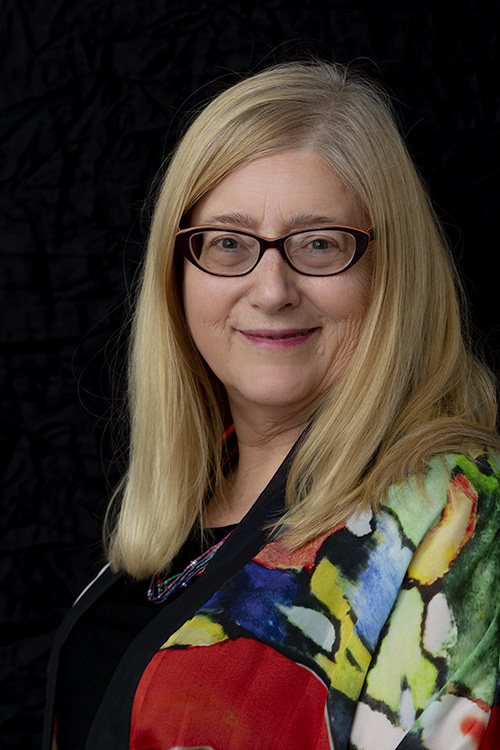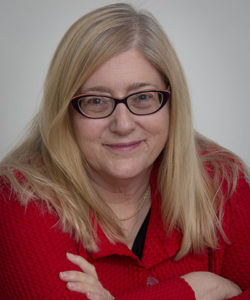Seller’s Remorse
Truly, even our own front door is a great threshold, no matter how familiar the worlds within and without may be. There is a new world behind every door. —Rev. Dr. Molly Housh Gordon
We bought our house in North Carolina on the first anniversary of our first date. We saw it on a whim. We had flown out from California to take care of grandchild #1 when grandchild #2 was just born. It was Sunday afternoon, the new baby was crying, and we ducked out for a few minutes of peace and quiet. What to do when it’s Sunday in a place you’ve never been? Tour open houses. We fell in love with the first one we saw. It was five bedrooms on two acres; rather large for a couple of empty-nesters, but absolutely splendid.
We packed a U-Haul and drove across country. Everything we owned fit into that little truck. We bought lots more furniture to fill the new house, and over the years we bought enough stuff to fill up all the ample closets.
Eight years later the grandkids had moved away. Weeding and cleaning seemed to take more energy in our seventies. After my 2024 double whammy of cancer and cardiac procedures we began to consider a smaller house near a different child and grandchild. In March we staged our house, turning it from a home into a product in a process that reminded me of marketing a book that had been a beloved manuscript. Our house went on the market during our vacation in Spain, and it sold to an eager buyer before we got back. Suddenly we were on a quick march to empty our home with no other place lined up.
Downsizing.
A big house holds many secrets, all unearthed now: Fifteen pairs of scissors. Ten containers of shampoo stashed in four bathrooms. Two thousand too many books. Enough canned food to stock the giveaway pantry in a local church. And memories, so many memories. The literature from the moving company warned not to ship family heirlooms in the pod, but that was impossible; everything I still own is a memento. The quilt made from my mother’s clothing, the plaster handprints from my sons when they were in preschool, the mirror in a purple and pink beaded frame made by my elder daughter. When I took the mirror down, this inscription was revealed on the back:
What is imagination but a reflection of our yearning to belong to eternity as well as to time. —S. Kunitz
Every object in that big house required multiple decisions. Keep or sell? How to pack? Where to donate? The process was grueling in a way that’s hard to convey. Downsizing is a series of lessons in letting go, which becomes more urgent as the deadline approaches. Shredding ancient tax records made me weirdly nostalgic for the career I gladly walked away from.
And it’s not just objects. Which friends did we have time to see before we drove back across the country? In the midst of the mess of sorting and shedding we ordered five huge pizzas and invited people to the house from all the circles of friends we’d made in the last eight years: writers, tech people, political activists, meditation circle. It was short notice and while many came, many could not. Great party but then suddenly we were saying our goodbyes by text and phone calls to other people we were letting go of without a hug or a handshake.
In the midst of packing boxes I had a mammogram, a follow-up to the surgery last fall. When the radiologist came in afterwards she said, “There are five dots here. They are so small you’ll have to hallucinate with me to see them.” Were they something? Were they nothing? The surgeon urged me to have a biopsy right away, which would have stopped me from packing and carrying boxes. My internist took a look at the scans and said, “I can’t imagine two or three months would make a difference.” I took the whole thing as a sign that it’s time to live near family, and arranged for the scans to be sent to a hospital out west.
Eleanor Kubler Ross used to say you could apply her stages of grief to every loss, right down to misplacing a set of keys. We lost a lot more than keys by downsizing. We lost our glass dining room table, which would not fit into the moving pod. We lost the black futon couch which I had planned would accommodate overnight guests in our new quarters, wherever they turn out to be.
One night at dinner, after one of his endless trips to the PTA Thrift Shop or the dump, my partner said, “I’m not sure why we are doing this. We have an almost perfect life here.” I had been running on adrenaline and denial but in that moment it all fell away and I saw what we were losing: the view of the woods out back, the idyllic lifestyle, the sense of space in that big house, the long walks in the country. And we were losing our physical connection to the place where we had published my books and weathered the pandemic. Downsizing means that the life you built falls apart.
Things falling apart is a kind of testing and also a kind of healing. We think that the point is to pass the test or to overcome the problem, but the truth is that things don't really get resolved. They come together and they fall apart...again and again. It's just like that. The healing comes from letting there be room for all of this to happen: room for grief, for relief, for mystery, for joy." —Pema Chodron
Seller’s Remorse?
Tomorrow we drive to Tennessee. It’s the first leg of our drive across country in an electric car stuffed with things we cherish that would not fit into the moving pod. Already my daughter is making plans for us to visit the sea when we arrive in Oregon. I have so missed the Pacific. It will be good to be home.



7 Responses
I’ve gotta say I’m not nearly so sad about this as I look in the picture!
Wow. I am going through a similar experience right now. I’ve been beating myself up for complaining and feeling grief. Your words help me get to a more balanced place. We don’t ever fix the problems, just step it up a bit. I love your view.
Side note: The mammogram I got turned out to be nothing when I lost 20 lbs (decreases your risk of cancer more than surgery so I highly encourage it).
Hello Dana, I’m glad to hear the essay was helpful. On another note, I’d caution that the idea of losing weight for cancer prevention is problematical for several reasons. First, weight loss is difficult to sustain and yo-yo dieting increases the risk of many health conditions. Second, data shows that those with higher body weights live longer with a variety of health conditions including cancer (see the book The Obesity Paradox by Dr. Carl Lavie). Third, the optimal weight for longevity is classed as “overweight,” with lower life expectancy in the “normal” range. Fourth, weight loss in later life increases the risk of both osteoporosis and sarcopenia. Hope this information is useful to you.
very moving, lovely piece.
Thank you, Jamie!
Just did the same thing. Family and healthcare are now easily available.
Sellers’ remorse? Not a chance!
Congrats Kathy! Rock on!